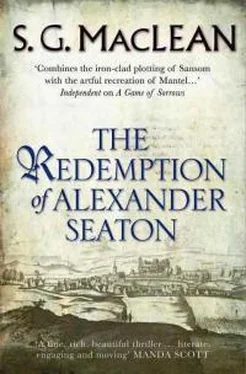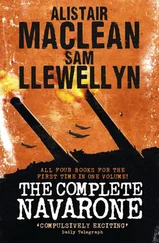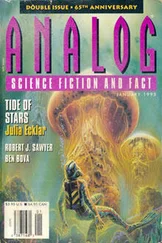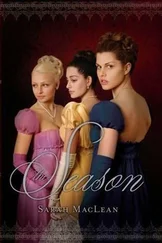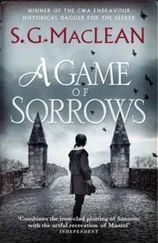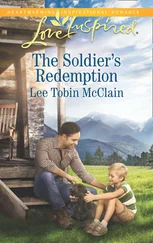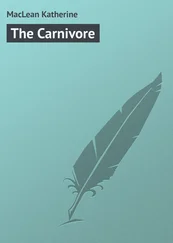‘She is almost beyond the reach of comfort. It should not have gone thus for my wife.’ And as he said so, he could not help looking up at the portrait on the wall. I wondered whether he feared being widowed a second time. I hoped for his sake and for hers that he would not be.
But then the man became the provost and asserted himself once more. ‘And now, Mr Seaton, to business. You saw Straloch?’
I answered that I had and I removed the sealed letter from my pocket. He took it and walked to the window on the south side of the room, where the late morning sunlight was beginning to filter through the dense glass. His eyes moved quickly across the page. Before they had reached the end an air of relief passed over his countenance and he nodded slowly to himself. ‘You have read this, Mr Seaton?’ he asked briskly.
‘No, provost, I have not. The letter is addressed to you. I do know the gist of Straloch’s opinion of the matter, though, and I am glad for it.’
He was watching me carefully. ‘And you trust the man?’
I thought about the quiet conversation in Straloch’s dining hall after I had first gone up to my bed; I thought of the sounds of horsemen leaving in the night, but I had no wish for further distractions or errands for the provost. ‘I trust his word on this: that if your nephew were any spy, he knew nothing about it before he saw that map.’
‘Then you still think my nephew was a traitor?’
I answered him as honestly as I dared. ‘I am satisfied enough with Straloch’s answer. My concern is to help the living, not to speculate about the dead.’ Yet in truth, it was not complete honesty. Straloch had no knowledge of any planned invasion or the commissioning of Patrick Davidson to draw these maps, but I had seen in his eyes that he was not convinced that such a commission had not been given. He may well have ridden south himself as he had told me he would do, but it was just as likely that his young retainers had ridden at night, and with some urgency, to Strathbogie and the Marquis of Huntly. I was not ready to dismiss the possibility of Patrick Davidson’s treachery as easily as Walter Watt would have had me do. If there had been treachery, then there had been a motive for murder, and its discovery would bring closer the release of Charles Thom, for what interest did he have in treachery and papist plots? I did not like to dwell on the topic in this place and this company, and was glad when the provost turned the conversation to another matter.
‘And did you fulfil my private commission?’
‘To George Jamesone?’
‘The artist. Yes. What response had you from him?’
I drew the second letter out of my cloak. There was no fire in the grate and the place was cold. The provost too still had his outer garments about him. Jamesone’s letter, as I had known, was shorter and pleased Walter Watt less. ‘I see he is now much in demand amongst the great ones, and cannot spare himself long to come to our mean burgh. Ach, well,’ he added, crumpling the letter and throwing it into the empty hearth, ‘perhaps it is not yet the time for paintings, but he will come at length, and it will be there, telling its story, long after we are gone.’ He came away from the window and started to head for the small door at the back of the room which led through to the rear of the house. He turned and nodded towards the main door, dismissing me abruptly. ‘You did your business well and with discretion, Mr Seaton. Do not trouble yourself further in the matter of my nephew. The appropriate authorities will see to their business there. Now I must wash away this pestilent smoke.’
I was glad to see myself out, and free from further obligation to those who had so recently taken me into their trust. I closed the door of the empty hall firmly behind me and stepped out into the midday light of the street. I turned down Water Path to make my way back to the schoolhouse, needing to rest and to think and perhaps even to pray before I commenced my business of the afternoon. At the edge of my vision, for a brief, deceiving moment, I thought I glimpsed a figure flit through the gate in the castle wall. Again I experienced, more strongly now, the sensation that had dogged me since my return to Banff the night before: that I was being watched.
The ground floor of the tolbooth, usually given over to the payment of taxes and the collection of fines, was packed, heaving with armed men and overworked officials who looked as if they had been there all night. The stench from the crammed cells on the upper floors was beyond the capacity of doors and walls to contain and combined with the lingering smell of smoke that permeated from the outside to create a putrefying miasma that almost overwhelmed me. There was no appearance of anyone being in charge, and so I asked one guard and then another and then another. When the fourth finally told me, I could not at first comprehend what he said. But then I understood – half the town was chained and shackled in those cells, but Charles Thom was not there; he was gone. Charles was gone from the tolbooth, and no one could tell me where he was. ‘He was taken away. By order of the baillie. He was removed in the night.’ This was all the man knew, he swore to it, and his fellow guards claimed to know no more than he did. Charles might be in the cellars of the laird of Banff’s palace, or he might be in the dungeon of the sheriff’s castle – at neither would I be given entry or have my questions answered. At worst – I hoped it was the worst – he would be out at the Ogilvy stronghold of Inchdrewer, but to ride out there would be to lose time I did not have. A messenger had ridden that morning, at dawn, to Aberdeen, to call back in person the sheriff to sit in judgement upon our burgh. There was no choice for me but to find out Baillie Buchan himself.
The baillie, I knew, lived alone on the upper floors of a mean tenement up a vennel to the west end of High Shore. He had never married, and such house-keeping as he allowed to be done for him was performed by the wizened and mute crone whose son held the feu of the tenement. I had never ventured there before. No one visited the baillie. The vennel was dank and dark, an appropriate place for William Buchan to issue from, as he went on his nightly inspections of our town. It had perhaps not always been a place of such foreboding. Two pairs of initials and a date, 1572, were engraved on the lintel above the door, a statement of hope and faith.
I banged hard on the timber and the chickens pecking in the backyard scattered, squawking at the unheard-of intrusion. It was the crone who came to the door. ‘I must see the baillie, urgently. He is not to be found in the town. Where will I find him?’ She looked at me with pale and watery eyes and nodded, twice, before holding up a bony finger to me, presumably that I should wait, then shutting the door. Two or three minutes later, she reappeared, opened wide the door, and stood back for me to pass. Then she pointed up the stairs and went back to her cooking pot. The mixed odours of fish broth and peat smoke pursued me silently as I ascended to the baillie’s quarters. There was no candle on the stairway and the few small windows of this gable house gave very little light, faced as they were by the solid houses just a few feet across the vennel. I found my way by groping the spiralling granite of the walls, and came at length to a small doorway opened onto the first landing. A dim and flickering light issued from the gap between door and jamb, and I pushed the door open quietly without knocking. Sitting in a comfortless wooden chair, by the small fire that struggled in the grate, was Baillie William Buchan. Opposite him, in an identical chair, a bowl of the broth at his hand, sat Charles Thom.
Читать дальше
